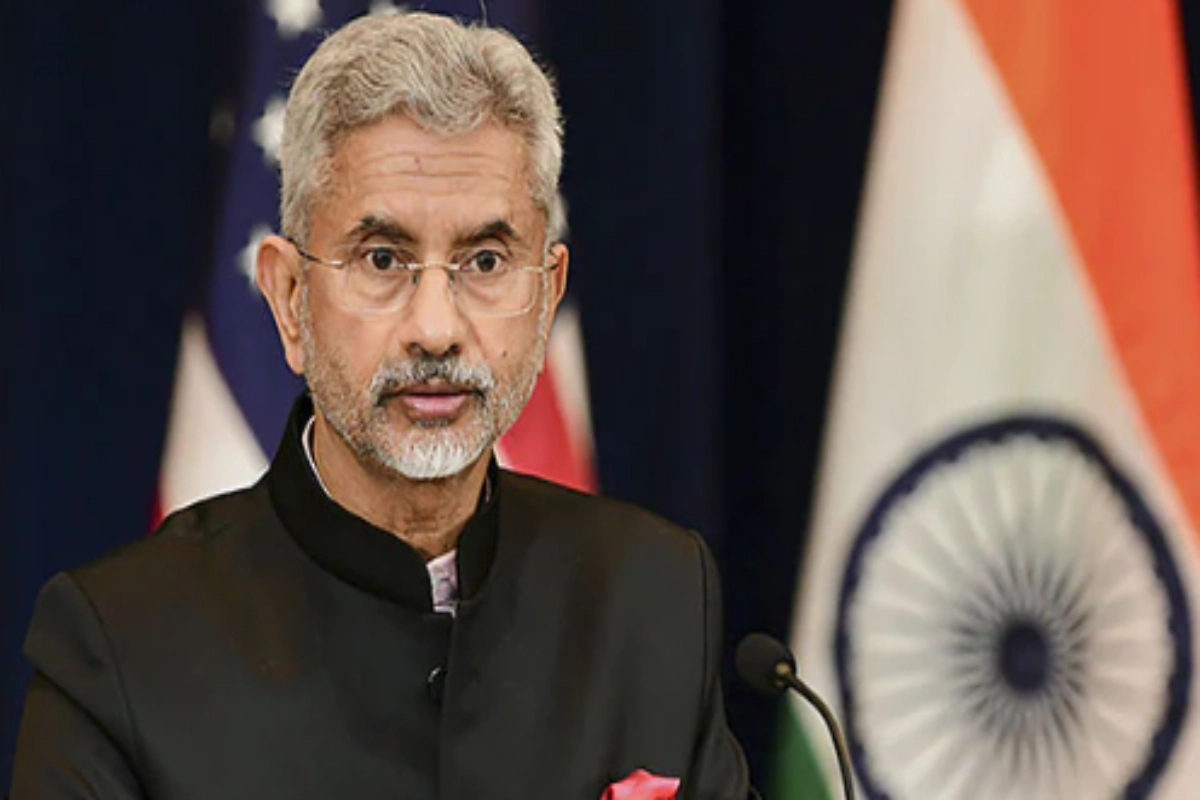S Jaishankar: In a sharp retort to Pakistan during the 79th session of the United Nations General Assembly (UNGA) on Saturday, External Affairs Minister S Jaishankar took a straight jibe at its role in harbouring terrorism. In a much powerful speech, Jaishankar remarked that “Many countries get left behind due to circumstances beyond their control, but some make conscious choices with disastrous consequences. A premier example is our neighbour Pakistan”, S Jaishankar said. He added Pakistan has made a “conscious choice” that has led it down the gallows. He believed it is Pakistan’s own doings that have put the country in this vulnerable spot, suggesting that the nation is meeting with its “karma.”
S Jaishankar on Pakistan’s Role in Terrorism and Radicalization
Jaishankar did not shy from commenting upon Pakistan’s role in promoting terrorism. He said while a few nations suffer due to unavoidable circumstances, Pakistan’s problems are of its own making. “Unfortunately, their misdeeds affect others as well, especially the neighbourhood. When this polity instils such fanaticism among its people. Its GDP can only be measured in terms of radicalisation and its exports in the form of terrorism,” Jaishankar said.
In saying so, Jaishankar underlined the aspect of increasing isolation faced by Pakistan on the global platform owing to its unwillingness to drop the policy of exporting terror. The message was of a stiff warning: such policies would inevitably turn out inescapable for such nations. He pointed out that Pakistan should not blame the world for its condition but reflect on its own actions. “A dysfunctional nation coveting the lands of others must be exposed and must be countered,” Jaishankar said.
Cross-Border Terrorism and Kashmir
The External Affairs Minister also referred to the question of cross-border terrorism in Pakistan, stating it will never succeed in its ambition. This comes following Prime Minister Shehbaz Sharif, in his address at the UNGA, stating the situation of Jammu and Kashmir is akin to Palestine. Sharif said the people of Kashmir fought for one hundred years for the right of self-determination and demanded India to take appropriate action regarding the abrogation of Article 370, abrogating the special status of Jammu and Kashmir.
Jaishankar responded by saying that Sharif’s claims were “bizarre”. He was quick to point out that the only issue left between the two countries now was the vacation of illegally occupied Indian territory by Pakistan. He also drove home the point that Pakistan must give up its long-standing affiliation with terrorism. “Pakistan’s policy of cross-border terrorism will never succeed. And it can have no expectation of impunity. On the contrary, actions will certainly have consequences,” Jaishankar warned. “The issue to be resolved between us is only the vacation of illegally occupied Indian territory by Pakistan and, of course, abandonment of Pakistan’s long-standing attachment to terrorism,” he added.
Indian authorities condemned the remarks of Sharif in which he drew a parallel between Kashmir and Palestine. At the same forum, Indian diplomat Bhavika Mangalanandan said Pakistan had used terrorism as state policy. She reminded the house of several terrorist attacks on Indian soil that Pakistan had executed including the attack on the Indian Parliament and Mumbai.
“It has attacked our parliament, our financial capital, Mumbai, marketplaces, and pilgrimage routes. The list is long. For such a country to speak about violence anywhere is hypocrisy at its worst”, she said.
Broader Issues at the UNGA
Moving beyond the context of rivalry of India-Pakistan, Jaishankar referred to global challenges like Gaza and the Russian-Ukrainian conflict. He certainly knew that the world is in a big predicament, but at the same time, marked the “leave no one behind” aspect of UNGA, saying: “Countries have extracted more from the international system than they have put into it. We see that vividly in every challenge and every crisis, reforming multilateralism is therefore imperative.”
He also emphasized that the UN cannot remain paralysed in a world divided by terror and conflict. He stated that there’s much the organization has to do about food, fertilizer, and fuel access relevant to world stability.
Viksit Bharat- A Role Model for Global Change
The Indian foreign minister stated in his address that India has experienced rapid changes and is today at the forefront of change in the world. India has done many extraordinary things, he said, such as sending a spacecraft to the moon, installing its version of 5G stack, and distributing vaccines across the world. All these prove that the country can well be considered as a developed country, or “Viksit Bharat,” one that leads by example.
“We have to demonstrate that big changes are possible. When India lands on the moon, rolls out its own 5G stack, dispatches vaccines worldwide, embraces fintech or houses so many global capability centres, there is a message here,” he said.
